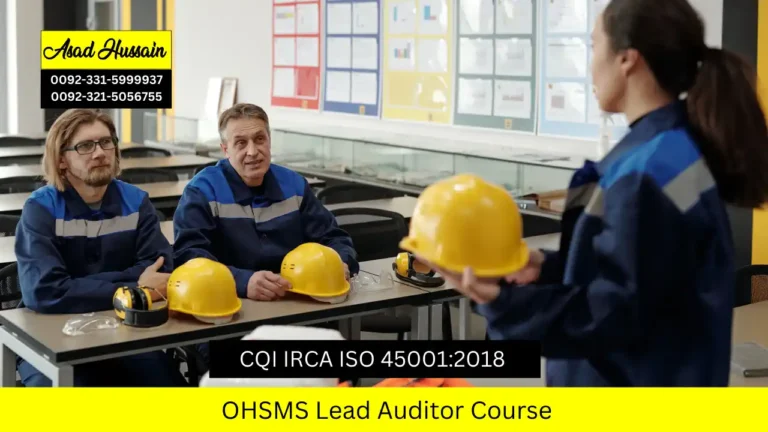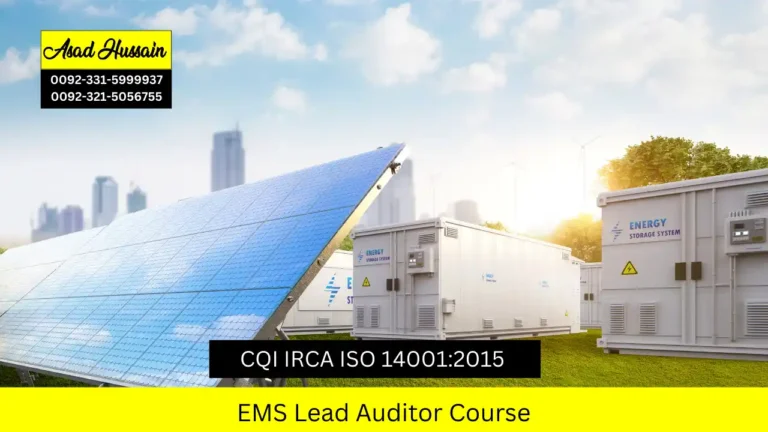In today’s evolving global landscape, organizations are under increasing pressure to operate responsibly and sustainably. The IEMA Environmental & Sustainability Skills for the Workforce course is designed to equip employees at all levels with essential knowledge to drive positive environmental change. Whether you work in manufacturing, logistics, healthcare, retail, or the service sector, this foundational training empowers teams to align business practices with sustainability goals.
This course provides a practical understanding of core environmental and sustainability concepts, focusing on the challenges and opportunities businesses face in addressing climate change, waste management, resource efficiency, and legal compliance. The IEMA Environmental & Sustainability Skills for the Workforce course not only enhances individual awareness but also contributes to broader organizational transformation through more informed decision-making.
Learners will explore key sustainability topics such as carbon footprints, pollution prevention, and circular economy principles. With real-world case studies and interactive learning tools, participants gain insight into how environmental considerations can be integrated into daily roles and responsibilities. The IEMA Environmental & Sustainability Skills for the Workforce course supports a culture of continuous improvement and environmental stewardship.
Ideal for organizations seeking to embed sustainability into their workplace culture, this course also contributes to meeting ISO 14001 standards and other regulatory frameworks. By completing the IEMA Environmental & Sustainability Skills for the Workforce training, employees become active contributors to corporate sustainability objectives, reducing risks and improving operational performance.
With IEMA recognition, this course assures high-quality training developed by experts in environmental management. Whether your team is starting its sustainability journey or strengthening existing practices, the IEMA Environmental & Sustainability Skills for the Workforce course provides the confidence and competence needed to create lasting impact across your business operations.
Program Highlights
The IEMA Environmental & Sustainability skills for Workforce consist of 6 mandatory units and 7 Guided Learning Hours for completed Qualification.
Mandatory Units
- Introduction to Environmental and Sustainability Principles
- Environmental and Economic Risks and Opportunities
- Understanding Compliance Obligations and Legal Frameworks
- Business Drivers for Environmental and Sustainability Change
- Identifying and Managing Environmental Impacts
- Enhancing Environmental Performance in the Workplace
The IEMA Environmental & Sustainability Skills for the Workforce course is designed to be inclusive and accessible, making it suitable for individuals from diverse professional and educational backgrounds.
Educational Requirements:
There are no formal academic qualifications required to enroll in this course. It is open to learners of all educational levels. However, having a basic understanding of workplace operations or general principles related to health, safety, and the environment can be helpful for grasping the course content more effectively.
Age Requirement:
Participants must be at least 16 years old to take part in the course. It is ideal for both entry-level employees and seasoned professionals who wish to enhance their environmental knowledge and contribute to sustainable practices within the workplace.
Language Proficiency:
A strong command of the English language, including reading, writing, and speaking skills, is necessary to successfully complete the course. Depending on the training provider, non-native English speakers may need to provide evidence of their English language proficiency.
Professional Background:
No prior experience in environmental or sustainability roles is needed. This course is well-suited for employees across all sectors who are interested in understanding their environmental responsibilities and learning how to make a positive impact through sustainable workplace behaviors.
Introduction to Environmental and Sustainability Principles
- Understand the fundamental concepts and principles of environmental science and sustainability.
- Explain the importance of sustainable development and its impact on ecosystems and society.
- Recognize key global environmental challenges and their relevance to business and communities.
2. Environmental and Economic Risks and Opportunities
- Identify environmental risks that can affect business operations and economic performance.
- Analyze potential economic opportunities arising from sustainable practices and green innovation.
- Evaluate strategies to mitigate environmental risks while maximizing economic benefits.
3. Understanding Compliance Obligations and Legal Frameworks
- Describe relevant environmental laws, regulations, and compliance requirements at local, national, and international levels.
- Interpret legal frameworks that govern environmental protection and sustainability practices.
- Apply knowledge of compliance obligations to support organizational adherence to environmental legislation.
4. Business Drivers for Environmental and Sustainability Change
- Recognize internal and external factors motivating businesses to adopt sustainable practices.
- Analyze how stakeholder expectations, market trends, and regulatory pressures drive environmental change.
- Develop an understanding of the role of corporate social responsibility and sustainability in business strategy.
5. Identifying and Managing Environmental Impacts
- Assess and identify environmental impacts associated with business activities and processes.
- Implement tools and techniques for environmental impact assessment and management.
- Develop plans to minimize negative environmental effects and promote sustainable resource use.
6. Enhancing Environmental Performance in the Workplace
- Explore practical approaches to improve environmental performance within organizational settings.
- Implement sustainable workplace practices, including waste reduction, energy efficiency, and resource conservation.
- Monitor, evaluate, and report on environmental performance to support continuous improvement.
This course is ideal for professionals and students who are keen to deepen their understanding of environmental and sustainability principles within a business context. It is designed for:
- Business managers and leaders looking to integrate sustainable practices into their operations and strategic planning.
- Environmental officers and compliance specialists responsible for managing regulatory obligations and reducing environmental risks.
- Sustainability coordinators and consultants aiming to develop effective strategies to improve environmental performance.
- Employees across industries who want to contribute to their organization’s sustainability goals and enhance workplace environmental practices.
- Students and recent graduates pursuing careers in environmental management, corporate sustainability, or related fields.
- Entrepreneurs and innovators interested in identifying economic opportunities linked to sustainability and environmental stewardship.
Whether you are seeking to comply with legal requirements, drive organizational change, or build a career in environmental sustainability, this course provides practical knowledge and skills to support your goals.




